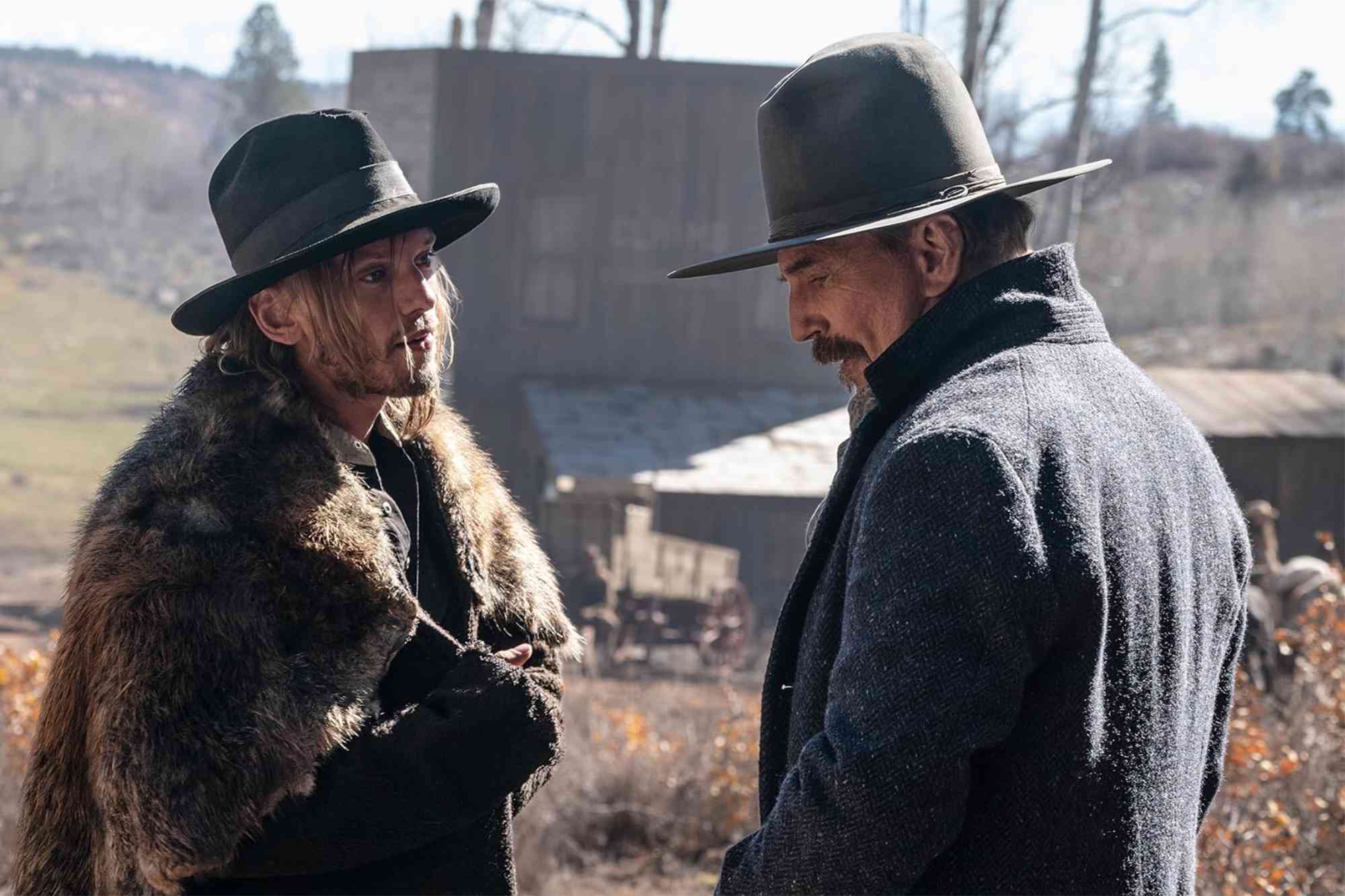
KEVIN COSTNER REFLECTS ON PRESSURE FOR “HORIZON” TO SUCCEED: 'I AM HAPPIEST THE MOVIE LOOKS THE WAY I WANT IT TO LOOK'
"If we put so much pressure on opening weekend, we're bound to be disappointed," says the writer-director-star.
Kevin Costner has a lot riding on the success of Horizon: An American Saga, but that doesn't mean he's sitting uneasily in his metaphorical saddle.
Costner largely self-financed the Western epic, spending reportedly somewhere around $38 million of his own money to make Chapters 1 and 2 of what he hopes will ultimately be a four-part saga.
But just because he made a big bet on the movie, which he co-wrote, directed, and stars in, doesn't mean he's gnashing his teeth as he awaits opening weekend. For him, the fact that he made the movie exactly as he wanted to, after decades of trying to do so, is success enough.
Related: Why making Horizon has long been Kevin Costner’s (manifest) destiny
"I've lived with movies and what happens to them on their opening weekend," he tells Entertainment Weekly. "If we put so much pressure on that, we're bound to be disappointed. I'm really happy that Horizon looks like what it's supposed to look like, and that's the way it'll look the rest of its life. And that's really important to me in this process."
"Would I love that it would be highly, highly successful?" he continues. "Of course, I'd like that. My ego would like that; everyone would like that. But I am happiest that the movie that you and I are talking about looks the way I want it to look."
Chapter 1 introduces the wide ensemble of Horizon: An American Saga — lone cowboy Hayes (Costner), who can't resist helping a woman and child in need; the survivors of a massacre, Frances Kittredge (Sienna Miller) and her daughter; the Apache warrior Pionsenay (Owen Shoe Crow) and his followers, driven to violence by intruders in their homeland; the men of the U.S. Cavalry, including the noble Trent Gephart (Sam Worthington); the murderous, vengeful Sykes brothers; and the exhausted members of a wagon train led by Matthew Van Weyden (Luke Wilson).
For Costner, it's a saga of the frontier and the American West that grants audiences an intimate view of those who tried to make their fortunes with westward expansion and those who suffered greatly in its wake. The story has an inevitability to it.
"I just know inherently, intuitively, that every town in America started like this," he reflects. "Somebody put a stake in the ground for some reason, and Native Americans had their homes in the best places along the river. So, it's not surprising that we come along and go, 'God, this is a really nice place.' It's not based on true stories, but everything I'm doing happened a million times."
While Costner has said that he was inspired by the imagery and mythos of iconic Westerns, most particularly the work of John Ford, he also is striving for a degree of realism that isn't necessarily key to those films that came before. "I understand the mythology of the thing," he says. "I would prefer to stay with real behavior. People did dance, but they didn't all know the same dance. I just try to take these situations and really deal with human behavior, like trying to survive a night of a terrible massacre one breath at a time."
Related: Why Kevin Costner bet his own money on new movie Horizon: 'I don’t need 4 homes'
Costner is also eager to delve into the lives of not only the white men who often dominate the Western genre but also the myriad of women and Native Americans whose lives were thrown into upheaval. To that end, he gives us Juliette Chesney (Ella Hunt), a proper British woman who steals water from her wagon train because she's so desperate to bathe; Ellen Harvey (Jena Malone), a woman who shoots her abusive lover and runs away to start a new life; Marigold (Abbey Lee), a sex worker using her womanly wiles to survive; and Frances, a wife and mother who is now the sole provider for her daughter.
"It was a story that repeated itself that women were brought out there against their will," Costner notes. "What I'm interested in is women who had a giant yearning just to bathe because they felt so filthy from what they were doing, women who basically worked themselves to death when they lost a husband. I really try to expose those realities of living in that time."
Want more movie news? Sign up for Entertainment Weekly's free newsletter to get the latest trailers, celebrity interviews, film reviews, and more.
Related: Kevin Costner explains why he decided to leave Yellowstone: 'Just time to move on'
That's certainly a part of Chapter 1, but Costner promises Chapter 2 will delve even deeper into those themes, particularly how they relate to Frances. Costner recently rewatched the second film and says, "I satisfied myself that it's as good if not better than Chapter 1. The only thing that's different is it actually gets harder on the people and the women in that situation. It just keeps getting harder."
Regardless of how Horizon is received this summer (Chapter 1 is out now, with Chapter 2 slated for an Aug. 16 release), Costner is forging ahead with his plan to make four total films. He's already shot 13 days of Chapter 3.
As he puts it, "People are going to just keep coming, and the story is going to keep coming, and it's going to expand."
Read the original article on Entertainment Weekly.
2024-06-28T14:10:36Z dg43tfdfdgfd